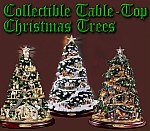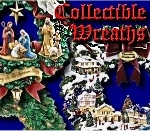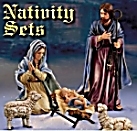| This story edited by Paul D. Race for FamilyChristmasOnline.com |
| This story edited by Paul D. Race for FamilyChristmasOnline.com |
|
|
About This StoryThis is one of the first English retellings of this charming Eastern European legend. In this version, first published in 1899, the heroine's name is spelled Babouscka, though it's more often spelled Babouscha today. I am told that this name is related to the Ukranian and Russian words for Grandmother, and also for head scarf. In the retelling published below, she is occasionally called "the babouscka," which makes it sound like a nickname for any woman of "a certain age," whether a grandmother or not.This Retelling's History - A century ago, this retelling of the story was given to a distant relative, Howard Neal, in a little book published by the Saalfield Publishing Company in 1903 (it had been previously published by the Werner Company in 1899). Unfortunately, the the author's name was not included in the book.
Does Babouscka Frighten Children on Purpose? - I understand that in the original legends, as well as in this retelling, Babouscka is a little scarey, a strange old lady tiptoeing into nurseries. That shouldn't surprise anyone, really - strange old women play a larger role in the folk traditions in Eastern Europe than they do in the West. But Babouscka is kindly, if a little confused, and whenever she startles a child, she makes up for it with a rattle or a ball. The illustration in the title is not in the book, rather it's from an old Christmas card, which seems to show a warmer, gentler version of the character. This "softening of Babouscka's character" parallels the "softening" of St. Nicholas, who used to dole out coal and sticks as well as toys. That said, if you want to locate charming versions of this story suitable for reading to very young children, you may check out the retellings by Aurthur Scholey Note: Since I finished this page, I discovered that this story was also published in a collection of other 19th-century stories and poems called "Twilight Stories." Unfortunately, that collection doesn't specify the author either. I asked that if any readers had certain knowledge of who wrote this version, I would be glad to hear from them and give appropriate credit. Update for 2021 - In January, 2021, alert reader Chris Philippo contacted me with several details that convinced me that the original author was Adelaide Skeel Kelly (1853-1928). Chris tracked down what seems to be the story's earliest appearance, in the child's magazine Wide Awake, vol. 14(1). January 1882, on pp. 61-63. That was before Adelaide was married, so it's credited to Adelaide Skeel. A mystery solved. Babouscka, a Russian Christmas Story - from Family Christmas Online(tm)If you were a Russian child you would not watch to see Santa Klaus come down the chimney; but you would stand by the windows to catch a peep at poor Babouscka as she hurries by.Who is Babouscka? Is she Santa Klaus' wife? No, indeed. She is only a poor little crooked wrinkled old woman, who comes at Christmas time into everybody's house, who peeps into every cradle, turns back every coverlid, drops a tear on the baby's white pillow, and goes away very, very sorrowful.
Whom is she trying to overtake? She scarcely looks at the little children as they press their rosy faces against the window pane and whisper to each other, "Is the Babouscka looking for us?" No, she will not stop; only on Christmas eve will she come up-stairs into the nursery and give each little one a present. You must not think she leaves handsome gifts such as Santa Klaus brings for you. She does not bring bicycles to the boys or French dolls to the girls. She does not come in a gay little sleigh drawn by reindeer, but hobbling along on foot, and she leans on a crutch. She has her old apron filled with candy and cheap toys, and the children all love her dearly. They watch to see her come, and when one hears a rustling, he cries, "Lo! the Babouscka!" then all others look, but one must turn one's head very quickly or she vanishes. I never saw her myself. Best of all, she loves little babies, and often, when the tired mothers sleep, she bends over their cradles, puts her brown, wrinkled face close down to the pillow and looks very sharply. What is she looking for? Ah, that you can't guess unless you know her sad story. Long, long ago, a great many yesterdays ago, the Babouscka, who was even then an old woman, was busy sweeping her little hut. She lived in the coldest corner of cold Russia, and she lived alone in a lonely place where four wide roads met. These roads were at this time white with snow, for it was winter time. In the summer, when the fields were full of flowers and the air full of sunshine and singing birds, Babouscka's home did not seem so very quiet; but in the winter, with only the snowflakes and the shy snow-birds and the loud wind for company, the little old woman felt very cheerless. But she was a busy old woman, and as it was already twilight, and her home but half swept, she felt in a great hurry to finish her work before bedtime. You must know the Babouscka was poor and could not afford to do her work by candle-light. Presently, down the widest and the lonesomest of the white roads, there appeared a long train of people coming. They were walking slowly, and seemed to be asking each other questions as to which way they should take. As the procession came nearer, and finally stopped outside the little hut, Babouscka was frightened at the splendor. There were Three Kings, with crowns on their heads, and the jewels on the Kings' breastplates sparkled like sunlight. Their heavy fur cloaks were white with the falling snow-flakes, and the queer humpy camels on which they rode looked white as milk in the snow-storm. The harness on the camels was decorated with gold, and plates of silver adorned the saddles. The saddle-cloths were of the richest Eastern stuffs, and all the servants had the dark eyes and hair of an Eastern people. The slaves carried heavy loads on their backs, and each of the Three Kings carried a present. One carried a beautiful transparent jar, and in the fading light Babouscka could see in it a golden liquid which she knew from its color must be myrrh. Another had in his hand a richly woven bag, and it seemed to be heavy, as indeed it was, for it was full of gold. The third had a stone vase in his hand, and from the rich perfume which filled the snowy air, one could guess the vase to have been filled with incense. Babouscka was terribly frightened, so she hid herself in her hut, and let the servants knock a long time at her door before she dared open it and answer their questions as to the road they should take to a far-away town. You know she had never studied a geography lesson in her life, was old and stupid and scared. She knew the way across the fields to the nearest village, but she know nothing else of all the wide world full of cities. The servants scolded, but the Three Kings spoke kindly to her, and asked her to accompany them on their journey that she might show them the way as far as she knew it. They told her, in words so simple that she could not fail to understand, that they had seen a Star in the sky and were following it to a little town where a young Child lay. The snow was in the sky now, and the Star was lost out of sight. "Who is the Child?" asked the old woman. "He is a King, and we go to worship him," they answered. "These presents of gold, frankincense and myrrh are for Him. When we find Him we will take the crowns off our heads and lay them at His feet. Come with us, Babouscka!" What do you suppose? Shouldn't you have thought the poor little woman would have been glad to leave her desolate home on the plains to accompany these Kings on their journey? But the foolish woman shook her head. No, the night was dark and cheerless, and her little home was warm and cosy. She looked up into the sky, and the Star was nowhere to be seen. Besides, she wanted to put her hut in order--perhaps she would be ready to go to-morrow. But the Three Kings could not wait; so when to-morrow's sun rose they were far ahead on their journey. It seemed like a dream to poor Babouscka, for even the tracks of the camels' feet were covered by the deep white snow. Everything was the same as usual; and to make sure that the night's visitors had not been a fancy, she found her old broom hanging on a peg behind the door, where she had put it when the servants knocked. Now that the sun was shining, and she remembered the glitter of the gold and the smell of the sweet gums and myrrh, she wished she had gone with the travelers. And she thought a great deal about the dear Baby the Three Kings had gone to worship. She had no children of her own-- nobody loved her--ah, if she had only gone! The more she brooded on the thought, the more miserable she grew, till the very sight of her home became hateful to her. It is a dreadful feeling to realize that one has lost a chance of happiness. There is a feeling called remorse that can gnaw like a sharp little tooth. Babouscka felt this little tooth cut into her heart every time she remembered the visit of the Three Kings. After a while the thought of the Little Child became her first thought at waking and her last at night. One day she shut the door of her house forever, and set out on a long journey. She had no hope of overtaking the Three Kings, but she longed to find the Child, that she too might love and worship Him. She asked every one she met, and some people thought her crazy, but others gave her kind answers. Have you perhaps guessed that the young Child whom the Three Kings sought was our Lord himself? People told Babouscka how He was born in a manger, and many other things which you children have learned long ago. These answers puzzled the old dame mightily. She had but one idea in her ignorant head. The Three Kings had gone to seek a Baby. She would, if not too late, seek Him too. She forgot, I am sure, how many long years had gone by. She looked in vain for the Christ-child in His manger-cradle. She spent all her little savings in toys and candy so as to make friends with little children, that they might not run away when she came hobbling into their nurseries. Now you know for whom she is sadly seeking when she pushes back the bed-curtains and bends down over each baby's pillow. Sometimes, when the old grandmother sits nodding by the fire, and the bigger children sleep in their beds, old Babouscka comes hobbling into the room, and whispers softly, "Is the young Child here?" Ah, no; she has come too late, too late. But the little children know her and love her. Two thousand years ago she lost the chance of finding Him. Crooked, wrinkled, old, sick and sorry, she yet lives on, looking into each baby's face--always disappointed, always seeking. Will she find Him at last?
Paul and Shelia Race To return to the Other Christmas Stories Page, click here. To return to the Family Christmas Online? Home Page, click here.
|

|


| 
| 
| 
| 
|
Note: Family Christmas Online? is a trademark of Breakthrough Communications(tm) (www.btcomm.com).
All information, data, text, and illustrations on this web site are
Copyright (c) 2006, 2007, 2008 by Paul D. Race.
Reuse or republication without prior written permission is specifically
forbidden.
Family Christmas Online(tm) is a participant in the Amazon Services LLC Associates Program, an affiliate advertising program designed to provide a means for sites to earn advertising fees by advertising and linking to amazon.com.
For more information, please contact us